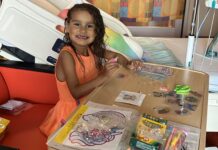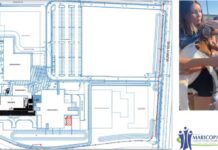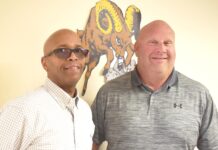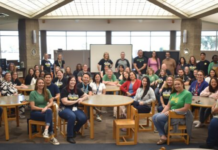By Murray Siegel
Special Education is a branch of education focused on students with special needs, such as learning disabilities, behavioral or physical challenges, or difficulty in communicating with others. Educators have a responsibility under federal law to create an environment in which a student’s difficulties are overcome.
One type of student with special needs does not generally have those needs addressed in school. This is the academically-gifted student.
Most folks would say the gifted student does not need any help. School is easy for him or her, so why bother with spending money? Yes, gifted students typically learn at an accelerated rate, but there are challenges.
How does a classroom teacher deal with a gifted student who completes the week’s lessons on Tuesday? Two typical strategies are to give that student busy work or ask that student to help another student who is struggling. Busy work is boring and a student who is gifted may not have the patience to work with a struggling student.
The fourth-grade teacher is conducting a lesson on long division. A gifted student in the class raises his or her hand and declares, “I have a better way to divide.” The teacher, if not educated in dealing with the gifted and/or without a deep knowledge of math, may simply tell the student to learn the method being taught. This will frustrate the gifted child.
Maricopa schools (MUSD) responded to a parental appeal for an elementary gifted program and hired a teacher to work with the gifted in grades three through six. One day each week, gifted students in a particular grade at all six elementary schools spend the day with Zoe Redfern, MUSD’s teacher of the gifted, at Saddleback ES. The program is managed by Gretchen Brown, director of multiple programs. Ms. Brown coordinates with a parental gifted committee. This committee is hoping to see the gifted program expanded to the middle schools and to open honors programs to gifted students beyond English and math.
An important component of the MUSD gifted program is the placement of a liaison for the gifted among the faculty at each elementary school. The liaison is helpful in explaining to teachers both the nature of giftedness and ways to maximize the learning experience of gifted children in the teacher’s class.
Gifted students do not simply learn faster. They have deeper insights and ask many “what if” questions.
Is it worth spending additional funds on these bright students? It is the gifted student, if properly challenged and allowed to flourish, who might someday discover a cure for cancer, create a pollution-free method for burning coal for energy or redesign the traffic flow at Sky Harbor Airport. MUSD’s gifted program will provide a positive return on investment.
Murray Siegel has a PhD in MathEd and 42 years of teaching experience. He and his wife Sharon are volunteer teachers of advanced math classes at Butterfield Elementary School.
















![Alleged car thief released without charges Phoenix police stop a stolen vehicle on April 20, 2024. [Facebook]](https://www.inmaricopa.com/wp-content/uploads/2024/04/IMG_5040-100x70.jpg)
![Locals find zen with Earth Day drum circle Lizz Fiedorczyk instructs a drum circle at Maricopa Community Center April 22, 2024. [Brian Petersheim Jr.]](https://www.inmaricopa.com/wp-content/uploads/2024/04/PJ_3922-Enhanced-NR-100x70.jpg)
